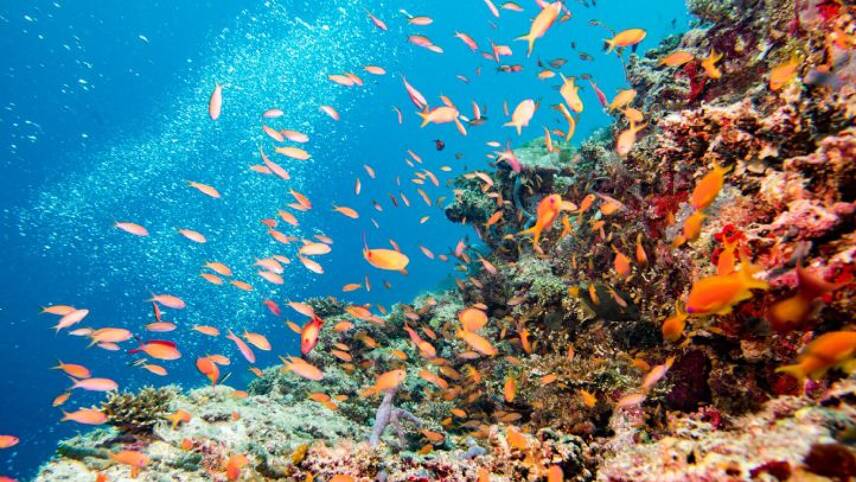Register for free and continue reading
Join our growing army of changemakers and get unlimited access to our premium content

The technology has already rebuilt three hectares of reef habitat near Indonesia
Under the partnership, the multinational food and beverage giant’s Australian arm has committed to co-fund a series of research and development projects aimed at restoring the Great Barrier Reef, increasing cocoa pollination across Oceania and championing sustainable farming techniques.
The first of these projects will explore the role innovative technologies can play in restoring sections of the Great Barrier Reef– a cause Mars Australia has campaigned for over the past decade.
Working with marine scientists from James Cook University, Mars Australia will scale up trials of its digital coral reef restoration device this year, the company announced this week. Called the Mars Assisted Reef Restoration System (MARRS), the technology scans reef beds before determining where to install sand-coated steel structures known as spiders. Once the spiders are erected, coral fragments are embedded into them ready for regrowth.
The MARRS project has helped to restore three hectares of habitat off the south coast of Indonesia to date and will now be rolled out off the north coast of Australia.
“As part of our Sustainable in a Generation Plan, Mars is focused on minimising our impact on the planet and making a difference to people throughout our total value chain,” Mars’s vice president for sustainable solutions Frank Mars said.
“One of the ways we are doing this is by working with the communities where we operate to develop innovative ways to ensure community farming is a sustainable and respected livelihood around the world. I am excited about what this collaboration could mean for many of the communities that we work with around the world, in particular, Australia’s iconic Great Barrier Reef.”
A sea change for corporate ocean stewardship
The announcement from Mars comes at a time when the Great Barrier Reef is believed to have lost more than half of its coral cover, largely due to rising sea temperatures and pollution.
These problems are only set to worsen as time goes on, with the Intergovernmental Panel on Climate Change (IPCC) having recently concluded that a global temperature increase of 2C – the less ambitious of the trajectories outlined in the Paris Agreement – would result in the complete eradication of all natural coral reefs.
In response to the issue, several businesses from a variety of sectors have added coral or ocean stewardship pledges to their sustainability strategy.
US-based jeweller Tiffany&Co, for example, has been lobbying for the implementation of an American Coral Reef Conservation Act since 2002, when it banned the use of coral in its products. Since then, the firm has awarded more than $70m (£55m) of funding to habitat restoration and preservation projects through its charitable arm, the Tiffany&Co Foundation.
Elsewhere, Swedish carmaker Volvo has begun hosting its annual Ocean Race event in partnership with the United Nations Environment Clean Seas campaign, in a bid to highlight issues such as overfishing and plastic pollution.
In addition, the World Bank has unveiled plans to launch the world’s first series of bonds aimed at advancing ocean stewardship and has priced the first bond at £85m.
Sarah George


Please login or Register to leave a comment.